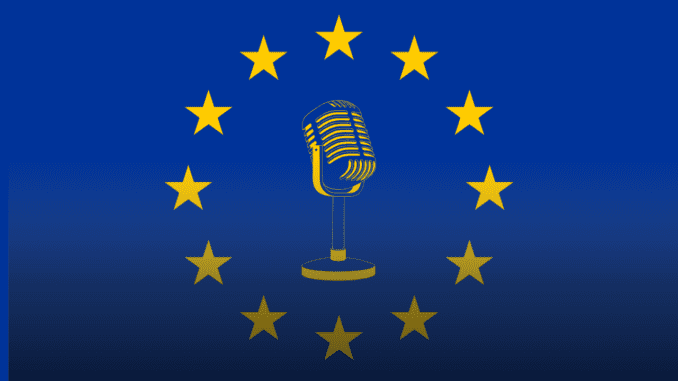
By Oshadhi Gimesha, Lead Journalist | Editor-in-Chief Approved
A Blow to Free Speech in 2025
The Czech Republic is calling on the European Union to step in and save Radio Free Europe/Radio Liberty (RFE/RL) after the Trump administration cut its funding. Announced this weekend, the move has left the Prague-based broadcaster, a beacon for millions in dictatorships like Iran, Belarus, and Afghanistan, in limbo. For Americans who value global democracy, it’s a jolt—yet the U.S. sees it as a cost-cutting win, sparking a fierce clash.
Key Points
- Czech Foreign Minister Jan Lipavsky urges the EU to support RFE/RL after the U.S. funding halt.
- RFE/RL reaches nearly 50 million weekly in 23 countries, including Russia and Ukraine.
- Trump’s cuts, backed by Elon Musk, face backlash as a threat to free press worldwide.
Voices at Risk
RFE/RL’s 75-year legacy hangs in the balance. The broadcaster, once a lifeline during the Cold War, now serves 23 countries, reaching nearly 50 million people weekly with uncensored news in places like Russia, Ukraine, Iran, and Afghanistan. “It’s one of the few credible voices in dictatorships,” says Lipavsky, pushing EU ministers to keep it alive. For U.S. families, it’s a distant issue—until you hear from folks like Anna Petrova, a Kyiv teacher. “RFE/RL keeps us informed when our media’s silenced,” she says.
In Germany or the UK, where press freedom is cherished, this cut feels like a global loss. Canadians and Aussies, watching U.S. policy shifts, might see echoes of their own media battles. For French or Dutch listeners, RFE/RL’s reach into Eastern Europe and Asia hits close, its 50 million audience spans their sphere of influence. Yet the U.S. move, led by Trump and cost-cutter Elon Musk, calls it a $1 billion waste, dubbing it “radical left crazy people.”
“The U.S. aims to stop funding Radio Free Europe/Radio Liberty. However, I see its contribution as crucial. It broadcasts to Russia, Belarus, Iran, and other countries,” said Minister @JanLipavsky about @RFERLPress at FAC. He believes RFE/RL’s future needs further discussion. 📻 pic.twitter.com/P7frzYcgys
— Czech Ministry of Foreign Affairs (@CzechMFA) March 17, 2025
Why the Cut, Why the Fight?
Trump signed an executive order Friday to slash funding for RFE/RL, Radio Free Asia, and Voice of America, part of a broader axe on the U.S. Agency for Global Media (USAGM). Musk, overseeing cuts, slammed the outlets on social media, saying, “Shut them down.” The logic? Trim a bloated budget amid a $36 trillion U.S. debt and $840 billion deficit in four months. “Taxpayers shouldn’t foot this bill,” a Trump aide argued Sunday.
But critics see the danger. RFE/RL’s CEO Stephen Capus warns the cut hands a “massive gift to America’s enemies”—Iran’s Ayatollahs, Chinese leaders, and Russian autocrats would cheer its fall. The Committee to Protect Journalists agrees, noting thousands of journalists, some in censored nations, now face “grave danger.” In Russia or China, where state media gets billions to counter Western voices, this feels like a win for control, not savings.
Gains, Losses, and Doubts
The U.S. saves cash, $1 billion annually—but loses a tool against authoritarianism. Big broadcasters in Moscow or Beijing gain ground, pouring funds into propaganda. For U.S. taxpayers like Mike Torres, a Denver mechanic, it’s mixed. “Less debt’s good, but what about freedom overseas?” he asks. Surveys show 47% of Americans back spending cuts, yet 38% worry about global influence slipping.
In Eastern Europe, RFE/RL’s 50 million listeners feel the sting—news deserts grow. The EU might step up, but funding’s tight there too, with Germany and France facing their deficits. For Canadians or Aussies, it’s a U.S. policy shift with global echoes—press freedom’s a shared value, but budgets clash.
What’s Next for Free Voices?
If the EU acts, RFE/RL might survive, airing news into fall. But if funds dry up, millions lose a lifeline, and autocrats gain. For U.S. households, it’s a distant debate, yet democracy’s stakes hit home. Germany, UK, and others watch too—will free press hold, or fade? News Zier will track this as it unfolds.
All facts are independently verified, and our reporting is driven by accuracy, transparency, and integrity. Any opinions expressed belong solely to the author. Learn more about our commitment to responsible journalism in our Editorial Policy.




